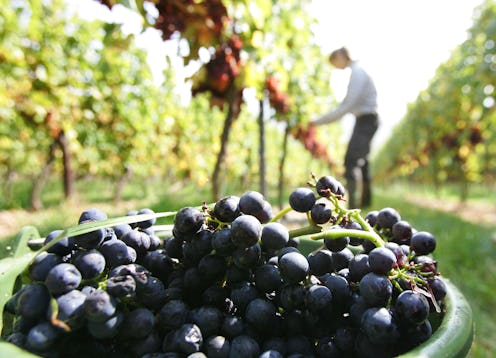Life
Global Wine Shortage??
We as human beings have a propensity to ruin everything, particularly when it comes to our planet. But the repercussions of our own laziness could soon hit a little closer to home, especially if you’re a vino enthusiast, because climate change is threatening to wipe out our wine supply. Cue the tears, the anguish, the nostalgia for even the worst of times when you and a friend split your favorite bottle and then belted for hours on end to the latest Beyoncé. Alas, all good things must come to an end, particularly when an entire subset of people refuses to acknowledge that we’re rapidly poisoning our earth.
BuzzFeed's Sandra Allen conducted an extensive report on the topic, noting that wine is but a small piece of the agricultural pie out of which climate change is currently biting. Throughout her article, Allen interviewed distributors about their crops and how they’re adjusting, albeit with difficulty, to catering to vineyards whose climates are no longer suitable to growing the intended grapes. Distributors such as Australia's Brown Brothers are now controversially buying lands that it estimates will be able yield wine grapes down the line and with a significant shift in climate, essentially catering to human fallibly but perhaps ensuring the survival of its trade.
And researchers and environmental activists are hoping to use wine as an example of the greater implications of climate change to agriculture as a whole, citing the fact that viticulture is a "slow-moving" and "climate-sensitive industry" and one to which adapting "will be a particular challenge."
In her research, Allen cites a hotly debated study from the Proceedings of the National Academy of Sciences (PNAS) that estimates that by 2050, the land conducive to viticulture — such as Italy, Spain, and the Napa Valley — could decline by 19 percent to 62 percent. And this year’s National Climate Assessment is no less grim, she notes, as the U.S. government predicts “the area capable of consistently producing grapes required for the highest quality wines is projected to decline by more than 50 percent by late this century.” Which means, of course, the industry's annual output will be sliced nearly in half (assuming other lands can't be appropriated for adequate viticulture). If we’re even capable of growing anything come 2050, imagine those two-buck Chuck bottles from Trader Joe's spiking to as much as $20 for a bottle (or more), never mind anything mid to top shelf.
The gravity of this situation, if not simply for the wine but our total agriculture losses across the board, is best summed up by Allen with the following:
If all of New York bagels were about to disappear forever, how much of a silver lining would it be if there were new opportunities for bagels in Des Moines? Especially if in this metaphor, there were bagel shops that had been perfecting their crafts for not just decades but in some cases centuries? This is the scariest part of global warming: the fact that we won’t be able to undo the damage done, that we won’t be able to extricate Venice, or New Orleans, from the sea. Their disappearance will be a net loss, regardless of what mountainside civilizations will someday rise.
Now would be the time to stock your basements accordingly.
